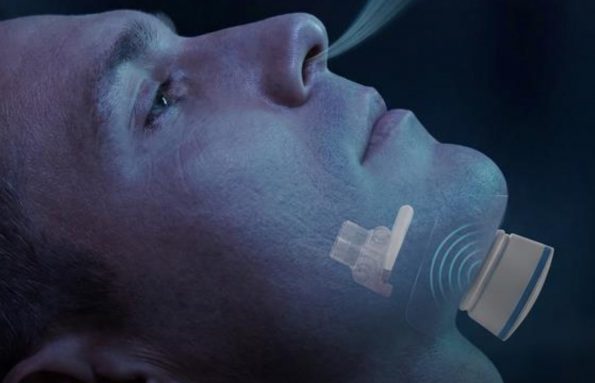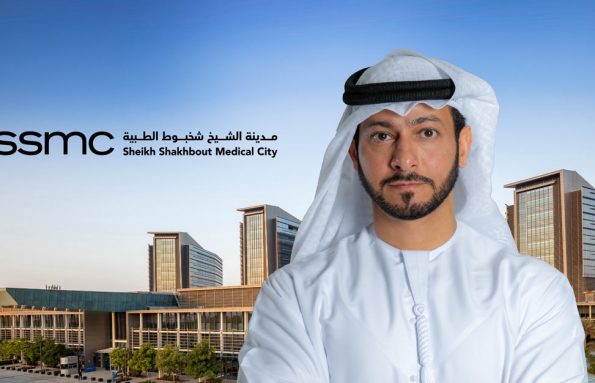As May marks Inflammatory Bowel Disease (IBD) Awareness Month, Sheikh Shakhbout Medical City (SSMC) in Abu Dhabi stands at the forefront of transforming IBD care in the UAE. Dr. Mohammed Nabil Quraishi, Consultant Gastroenterologist and Director of the IBD Centre at Sheikh Shakhbout Medical City (SSMC), shares how the institution is redefining IBD care in the UAE.
Dr. Quraishi notes a sharp increase in IBD cases across the Middle East, with Crohn’s disease now comprising two-thirds of local diagnoses. He stresses the importance of early detection and tailored care using modern tools such as fecal calprotectin tests and personalized medicine that considers genetics, microbiome profiles, and lifestyle.
Treatments have evolved significantly, with biologics and small molecule therapies offering targeted, life-changing relief. SSMC is advancing research into microbiome-based treatments and individualized care through the UAE Epi-IBD study.
“Our goal is precision care that anticipates a patient’s needs before complications arise,” Dr. Quraishi says. With a clear vision and a collaborative framework, SSMC is paving the way for a future where IBD is no longer a life-limiting condition.
Could you tell us more about how SSMC is shaping its approach to IBD management and what makes your IBD Centre unique in the UAE?
At Sheikh Shakhbout Medical City (SSMC), we take a comprehensive and personalized approach to managing Inflammatory Bowel Disease. We focus on treating the individual in front of us, not just the disease. Our IBD Centre in the UAE distinguishes itself by its multidisciplinary team of internationally trained experts, encompassing specialists from gastroenterology, surgery, nutrition, nursing, psychology, and pharmacy – a comprehensive approach unique to few centers across the UAE.
This collaborative team utilizes state-of-the-art facilities, including advanced diagnostic tools and a dedicated infusion suite. This integrated approach contributes to excellent clinical outcomes, with the majority of our patients achieving and maintaining rapid disease control. We create tailored care plans for each patient, provide access to the latest treatments through active research programs and clinical trials, and offer extensive patient education and support services, including a dedicated helpline and mental wellness support. We also have specific programs to proactively manage disease flares and support our sickest patients.
Could you give us an overview of the current prevalence of inflammatory bowel disease in the Middle East region? Are you seeing a rising trend?
Yes, we are definitely seeing a significant rise in IBD cases across the Middle East, including here in the UAE. The region is experiencing a rapid increase, likely driven by factors like urbanization, changing diets, and other environmental shifts. While exact figures across the entire region are still being gathered, estimates suggest a considerable jump in cases is expected in the coming years.
Our own data at SSMC reflects this dramatic trend, showing a nearly eighteen-fold increase in new IBD diagnoses among Emirati patients over the last two decades, particularly a sharp rise in Crohn’s disease since 2016. Crohn’s disease now makes up about two-thirds of the IBD cases we see in this group. This highlights a growing public health challenge for the region.
What are the key challenges in diagnosing IBD early, and how can clinicians differentiate it from other gastrointestinal conditions, especially in young adults?
Diagnosing IBD early can sometime be challenging because its symptoms – like stomach pain, diarrhea, tiredness, and weight loss – often mimic other common gut problems, such as irritable bowel syndrome (IBS). This overlap can lead to delays in getting the correct diagnosis and commencing appropriate treatment, sometimes for months or even years. Differentiating IBD, especially in young adults where IBS is also common, requires careful attention. Doctors should look out for “red flag” symptoms more typical of IBD, like rectal bleeding, weight loss, or waking up at night with diarrhea. Simple tests can help; for example, a stool test called fecal calprotectin can detect inflammation in the gut, pointing towards IBD rather than IBS.
Specific red flag symptoms and tests necessitate procedures such as colonoscopy which allow doctors to see inside the bowel and take tiny samples for testing, combined with specialized scans like MRI, are often needed to confirm the diagnosis and tell the difference between IBD and other conditions. Urgent referral to an IBD specialist is key if IBD is suspected as early diagnosis and early appropriate treatment can effectively change the course of the disease.
There’s increasing interest in the role of the gut microbiome in both the onset and management of IBD. How does gut microbiota influence disease activity, and are we close to seeing microbiome-based diagnostics or therapies in routine clinical practice?
The trillions of bacteria living in our gut, known as the gut microbiome, play a crucial role in our health, especially our immune system. In IBD, the balance of these bacteria is often disrupted – a state called dysbiosis. This imbalance, likely triggered by environmental factors in people with a genetic predisposition, can lead to the inappropriate immune response and chronic inflammation seen in IBD.
The gut microbiota influences disease activity by affecting immune regulation and the health of the gut lining. An unhealthy microbiome can contribute to ongoing inflammation. While we understand the microbiome’s importance, using it for routine diagnosis isn’t standard practice yet, though research into specific microbial “signatures” as biomarkers is progressing rapidly. Therapies targeting the microbiome are also advancing.
Fecal microbiota transplantation (FMT), a procedure where we transfer processed stool from a healthy donor, has shown some success in treating ulcerative colitis in trials, but more research and standardization are needed. We have completed a clinical trial ourselves in the UK (called STOP-Colitis) where we learnt that FMT does improve disease activity in patients with ulcerative colitis, but this effect is variable and short lived. The future likely lies in more precise approaches, like using specific beneficial bacteria or specially designed gut microbes, some of which are already in clinical testing.
From a treatment standpoint, how have biologics and newer small molecule therapies transformed the management of IBD in recent years? What are the main considerations when choosing between them for your patients?
Modern treatments like biologics and the newer small molecule drugs have truly changed the lives of people with moderate to severe IBD. These advanced therapies work by targeting specific parts of the immune system that drive inflammation.
Compared to older medicines, they are much better at controlling symptoms, healing the lining of the gut, and reducing the need for steroids. This leads to a significantly better quality of life and can help prevent long-term complications. We now have several types, targeting different immunological pathways. Choosing the right therapy for each patient requires careful consideration. We look at how effective the drug is for their specific type and severity of IBD, its safety profile and potential side effects, how it’s given (injection, infusion, or pill), the patient’s lifestyle and preferences, other health conditions they might have, and treatment cost and access.
It’s a very personalized decision we make with our patients and is aimed at finding the best possible outcome for that individual. At SSMC, a large proportion of our patients benefit from these advanced treatments and consequently most of our patients are well with no symptoms or measurable disease activity.
Could you elaborate on the importance of personalized medicine in IBD treatment? How are genetic, microbial, and environmental factors shaping individualized care strategies?
Personalized medicine is incredibly important in IBD because the disease varies so much from person to person. What works well for one patient might not work for another. We need to tailor treatment to the individual’s specific situation.
Understanding a person’s unique genetic makeup, their gut microbiome, and their environmental exposures helps us do this more effectively. For instance, specific genes can influence someone’s risk of developing IBD or how severe their disease might become. Similarly, the types of bacteria in someone’s gut can impact inflammation and potentially how they respond to treatment. Environmental factors, like diet, smoking, or past antibiotic use, also play a significant role.
By gathering information on all these aspects, we may one day be able to predict who is at higher risk, who will respond best to which treatment, and even how to prevent the disease in susceptible individuals. Our Department of Health-funded UAE Epi-IBD study at SSMC is central to achieving this in the UAE. This is a large body of work in collaboration with multiple national and international institutes that aims to understand and combine various factors to develop more precise and personalized treatment approaches for our patients in the UAE.
What role does diet and lifestyle play in managing IBD symptoms and flare-ups? Are there any dietary protocols or nutritional guidelines that you recommend to your patients?
Diet and lifestyle are important pieces of the puzzle in managing IBD. While they don’t usually cure the disease, they can certainly help control symptoms, prevent nutritional problems, and support overall well-being. Certain foods might trigger symptoms like pain or diarrhea for some people, especially during a flare-up, so identifying personal triggers is helpful. Malnutrition can be a concern, so ensuring adequate intake of calories, protein, vitamins, and minerals is vital for healing.
Lifestyle factors matter too; stopping smoking is critical for Crohn’s disease patients, and managing stress can be beneficial. At SSMC, we work closely with dedicated IBD dietitians to provide personalized advice. When the disease is calm, we often recommend a balanced, varied diet like the Mediterranean diet, rich in fruits, vegetables, lean protein, and healthy fats.
During flares, we might suggest temporarily modifying the diet to include easier-to-digest foods, sometimes using a low-fiber approach for a short period. Specific diets like the Crohn’s Disease Exclusion Diet are sometimes used under supervision. The key is individualization and ensuring good nutrition is maintained.
In terms of future therapies, what innovations or clinical trials are you most optimistic about for IBD treatment? Is fecal microbiota transplantation (FMT) showing promise?
The future of IBD treatment looks very promising, with research exploring many new avenues. I’m optimistic about therapies that target inflammatory pathways even more precisely than current treatments allow, including newer biologics and small molecule drugs.
We are also learning more about combining existing therapies for patients with very difficult-to-treat disease. Therapies aimed at the gut microbiome are a major focus. Fecal microbiota transplantation (FMT), as mentioned, has shown potential for ulcerative colitis in some studies, but we need more research to define its exact role.
Perhaps even more exciting is the development of precisely defined microbiome therapies – specific beneficial bacteria delivered as a treatment. Another key area is the integration of ‘multi-omics’ data – combining genetic, microbial, and other biological information – to truly personalize treatment choices and predict outcomes. At SSMC, we ensure our patients have opportunities to participate in clinical trials exploring these innovative approaches.
What kind of multidisciplinary approach is needed for effective IBD care? How important is collaboration between gastroenterologists, dietitians, psychologists, and other specialists?
Effective IBD care absolutely requires a team approach – what we call multidisciplinary care. This condition affects so many aspects of a person’s life that no single specialist can manage it all alone. Collaboration is crucial. At SSMC, our core team includes gastroenterologists, specialist IBD nurses, dietitians, psychologists, and surgeons working closely together. The nurses provide vital education and support, dietitians manage nutritional health, psychologists help with the emotional and mental health challenges, and surgeons address complications.
Also Read: Insights from Dr. Eyad Alakrad on Gut Health, Awareness, and Personalized Care.
We also bring in radiologists, pathologists, pharmacists, and other specialists like rheumatologists or dermatologists whenever needed. This team effort ensures we look at the whole picture, leading to more accurate diagnosis, better treatment plans decided through team discussions, improved management of complications, and ultimately, better health and quality of life for our patients.
What advice would you give to primary care physicians and general practitioners in the Middle East to help improve early detection and referral of IBD cases?
Primary care physicians are on the front line and can make a huge difference in catching IBD early. Given that IBD is increasingly common in the Middle East, my main advice is to keep IBD in mind when patients present with persistent gut symptoms like chronic diarrhea, abdominal pain, bleeding, or weight loss, especially if they are young adults but remembering it can occur at any age. Look out for “red flag” symptoms that suggest something more than IBS.
Using the fecal calprotectin stool test is a very helpful step; it can indicate inflammation and helps decide who needs urgent referral to a specialist. Don’t hesitate to refer patients with suspicious symptoms or an elevated calprotectin test to a gastroenterologist or an IBD specialist promptly. Early diagnosis and treatment lead to much better outcomes and can prevent serious complications down the line. Continued collaboration between primary care and specialist teams is also vital for ongoing patient care.
source : A Deeper Look at IBD: Dr. Quraishi on Early Detection, Innovation, and Personalized Treatment






